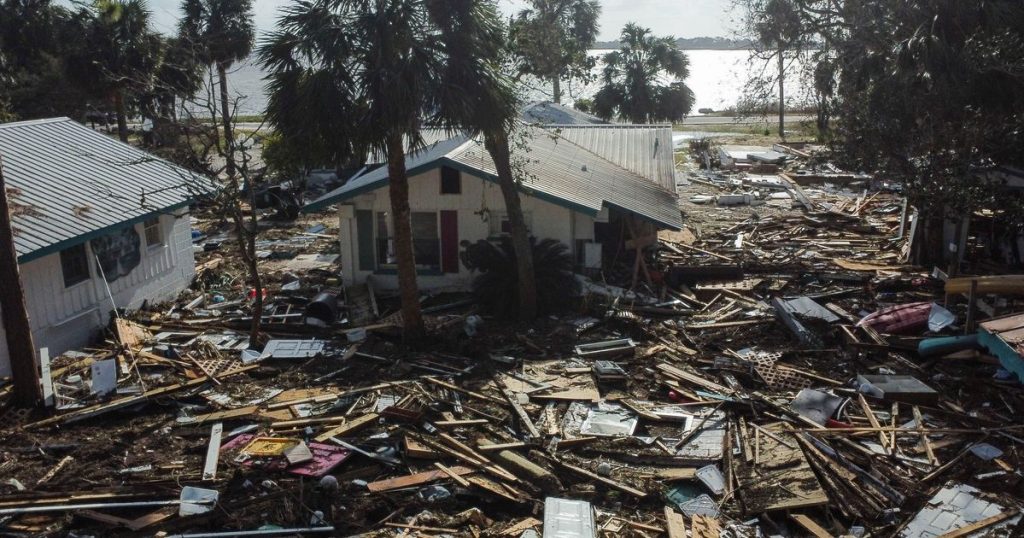Hurricane Helene caused widespread destruction and dozens of deaths across the southeastern U.S., leaving more than 3 million customers without power. The storm made landfall in Florida as a Category 4 hurricane with winds of 140 mph before moving through Georgia, the Carolinas, and Tennessee, causing floods, landslides, and dam failures. In total, at least 44 people were killed in Florida, Georgia, North Carolina, South Carolina, and Virginia as a result of the storm.
Moody’s Analytics estimated that the property damage caused by Hurricane Helene could amount to between $15 billion and $26 billion. Western North Carolina was particularly hard hit by landslides and flooding, cutting off the region due to road closures. Tornadoes and record-breaking rainfall also occurred in various areas, with Atlanta receiving over 11 inches of rain in 48 hours. The storm, while post-tropical, was expected to linger over the Tennessee Valley through the weekend, causing continued flood and flash flood warnings.
The impact of Hurricane Helene was felt far beyond Florida, with other southeastern states facing catastrophic damage to infrastructure and widespread power outages. Rescuers worked round the clock to assist those trapped by floodwaters and debris, with more than 1,500 FEMA workers deployed to the region. North Carolina faced historic flooding that some compared to events not seen in a century, prompting emergency aid and rescue efforts from neighboring states.
Climate change has been cited as a factor contributing to the intensification of storms like Hurricane Helene, which rapidly grow in power due to warming ocean temperatures. The community in Florida’s Big Bend region, where the storm made landfall, faced significant devastation, with many residents losing their homes and belongings. Many residents, such as Susan Sauls Hartway, found themselves displaced and uncertain about their future given the widespread destruction.
Though she lost her home to the storm, Susan Sauls Hartway expressed a deep connection to rural Taylor County and vowed to remain there despite the challenges faced by the community. Evacuation orders were issued in several areas, and officials expected the death toll to rise as crews conducted search and rescue operations in flooded neighborhoods. The region has been hit by multiple hurricanes in recent years, adding to the strain on local resources and infrastructure.
At least 44 people were confirmed dead as a result of Hurricane Helene, with fatalities reported in Florida, Georgia, the Carolinas, and Virginia. The storm uprooted trees, damaged homes, and caused extensive flooding, leading to dramatic water rescues and mass evacuations. As communities grapple with the aftermath of the storm, emergency responders and volunteers continue to work tirelessly to provide aid and support to those affected by one of the most destructive hurricanes in recent memory.


